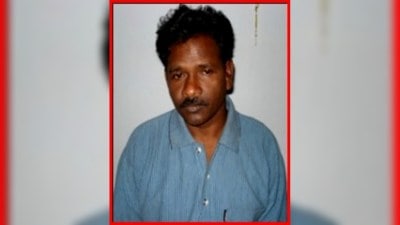Thank You for the Music
Kersi Lord,whose family has helped make some of the most popular classic Hindi film music,talks about life as a musician and arranger
From a faraway radio at a window in some strangers house or office,the sound of old songs floats languidly in the heavy afternoon air. You listen to the familiar strains of Roop tera mastana and think of the great and tragic romance between Rajesh Khanna and Sharmila Tagore in Aradhna. Or perhaps,you think of how only Kishore Kumar could have made the song so magical. Even though music lovers note how beautifully the accordion adorns the melody,very few will know whom to thank for it. But we always knew that we were going to be behind the scenes, says Kersi Lord,whose legacy includes Roop tera mastana,Maang ke saath tumhara,Main zindagi ka saath nibhata chala gaya and several other classics across his 60-year career as an instrumentalist and arranger.
Kersi was in the city on Sunday,accompanying filmmaker Rudradeep Bhattacharjee for a screening of his film The Human Factor at Poona Music Society.
The 75-minute film traces the lives and experiences of the unsung heroes behind the evergreen music from the 50s and the 80s,such as the orchestra,arrangers and recordists. Kersi himself is a second-generation musician from a family that has been immersed in film music for more than half-a-century. The story begins with Kersis father,Cawas,who became famous within the industry for bringing in new and international sounds with his innovative percussion. Kersi and his brother Bujji soon joined their father. As Bhattacharjees film points out,since 1947,almost every third song from that era had a Lord performing in it.
Ask Kersi about the songs,and he says,There was never any time to listen to our own songs. Wed record about five songs a day,so Id have to erase from my mind whatever I played during a recording at
7 am,so that I could play afresh during my next recording at 10. Kersi dropped out of school and began playing music for films when he was just 14. He failed Class XI twice and ended up practicing for up to 14 hours a day. My neighbours would say,Kersi please,we have an exam tomorrow,please dont practise today.
From the 50s to the year 2000,Kersi has worked with almost all the top music directors. His friends once tried calculating how many songs he had recorded as an instrumentalist and an arranger. He recalls,We took an average of two songs per day and came up with a total of some 20,000 to 25,000 songs. Thats impossible,I think,but there were so many,its hard to keep count. Recording music in the early days was very different,says Kersi. We didnt make songs like today,in patchwork. There could be between 40 and 100 musicians in one studio,sometimes sharing one microphone. And everyone had to get their part right for the final take. I remember the looks Lataji would give us if anyone made a mistake,because she would have to begin singing the song all over again for the new take, he says.
These challenges meant nothing to Kersi,who tried new techniques to get a bigger,better and newer sound. My family and friends would call me mad,because many couldnt digest the music I was making. When I made the background score for the play Tughlaq,someone said behind my back,Isko music bolte hain? But even after 40 years,people listen to those songs, he says.







